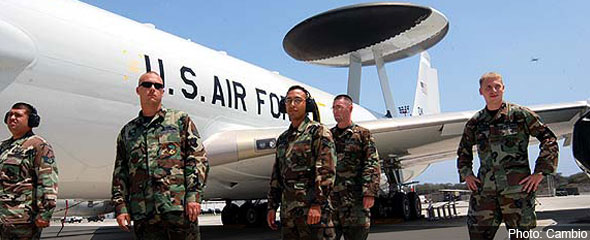
The U.S.’s military presence in Colombia decreased over the last three years, according to data released by the North American nation’s State Department.
Colombian Congress permits a limit of 800 U.S. military personnel and 600 contractors to participate in Plan Colombia, a multi-billion dollar U.S. aid package aimed at curbing drug trafficking and left-wing insurgency in the Andean nation.
According to the latest available statistics, in March 2010 there were 227 U.S. soldiers and 257 contractors in Colombia – 30% of the total permitted.
The number of U.S. operatives in Colombia has been falling since 2007, the year in which U.S. military presence was at its highest in ten years.
In 2007, according to the State Department, there were 563 U.S. soldiers and 440 contractors in Colombia. In the following year the figure dropped to 333 soldiers and 368 contractors. In 2009 the number was 294 soldiers and 342 contractors.
Data on U.S. military presence in Colombia was published between 2000 and 2002, after which there was a change in regulations, making it difficult to obtain precise information on the situation.
However following requests by U.S. NGOs Just the Facts and the Washington Office on Latin America (WOLA), the State Department has decided to publish figures on the subject on a yearly basis.
The cap on the number of U.S. personnel permitted in Colombia was established in 2000, amid Colombia legislators’ concerns that the conflict-affected nation could become another Vietnam, if precise limits were not clearly specified, according to El Tiempo.
According to Just the Facts, the U.S. has never exceeded the cap put in place by Congress. However the cap can be waived in the case of a rescue or humanitarian mission.
Exact figures on the U.S. military presence in Colombia following the 2003 kidnap of three North American contractors by the FARC, are not known.
The 2009 signing of a Colombia-U.S. military pact, which grants the North American nation access to seven Colombian military bases, has come under fire from neighboring countries due to concerns that the U.S. presence may undermine regional sovereignty.

